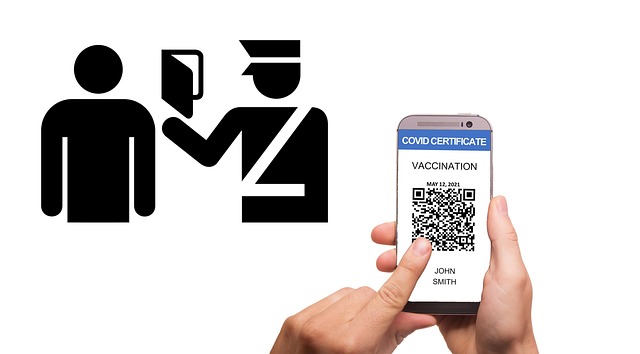Definition and Purpose
Digital health passports, or immunization certificates, have become pivotal in the post-pandemic landscape. In Germany, these digital documents serve as proof of vaccination, linking personal health data with identity verification tools to facilitate safe and efficient travel. The German government, in collaboration with the European Union, has endorsed these passports to streamline cross-border travel and ensure public health safety.
Technical Infrastructure
The technical backbone of Germany’s digital health passport system leverages blockchain technology for security and privacy. Developed by IT giants such as SAP and Deutsche Telekom, the system ensures that personal health data, such as COVID-19 vaccination status, test results, and recovery information, are securely stored and easily accessible. This infrastructure supports the EU Digital COVID Certificate framework, allowing seamless verification across member states.
User Accessibility and Adoption
Adoption rates among Germans have been robust due to the passport’s convenience and the easing of travel restrictions it facilitates. Accessible via smartphone apps like the CovPass app and the Corona-Warn-App, the digital health passport is widely used for both domestic and international travel, as well as access to public events and venues such as concerts and sports arenas.
Impact on Travel and Public Access
Facilitating International Travel
For travelers, the digital health passport has become an indispensable tool. It simplifies the process of proving health status when entering foreign countries or returning to Germany, aligning with global standards set by the International Air Transport Association (IATA). Airlines such as Lufthansa have integrated digital verification processes, streamlining boarding and entry procedures, thereby reducing wait times and enhancing overall travel efficiency.
Regulations and Public Life Integration
Within Germany, regulations surrounding access to public spaces like restaurants, theaters, and public transport now often require proof of vaccination or a negative test, easily demonstrated through the digital passport. This integration into daily life reflects a broader trend towards digital health solutions that prioritize both health security and personal mobility.
Privacy Concerns and Legal Framework
Despite its benefits, the digital health passport system has raised privacy concerns among citizens and data protection advocates. The German Federal Data Protection Commissioner has stipulated strict guidelines to ensure that data collected through these passports is limited to what is necessary and is handled securely to prevent unauthorized access.
Understanding Digital Health Passports
- Technical Infrastructure: Developed by technology leaders like SAP and Deutsche Telekom, Germany’s digital health passports utilize advanced blockchain technology. This ensures a high level of data security and privacy, integrating seamlessly with the broader EU Digital COVID Certificate system to verify health status across borders effectively.
- User Accessibility and Adoption: The widespread adoption of digital health passports in Germany has been propelled by their ease of use through applications such as CovPass and the Corona-Warn-App. These apps enable citizens to effortlessly display their health status, enhancing mobility and access in both domestic and international contexts.
Impact on Travel and Public Access
- Facilitating International Travel: Digital health passports have revolutionized travel for Germans, aligning with global travel protocols established by entities like the International Air Transport Association (IATA). Major airlines, including Lufthansa, have integrated these passports into their check-in and boarding processes, significantly smoothing the travel experience for passengers.
- Regulations and Public Life Integration: In Germany, access to various public spaces, such as restaurants, cultural sites, and public transport systems, now often requires proof of health status via a digital passport. This requirement has been crucial in maintaining public health while allowing economic and social activities to resume more safely and efficiently.
- Privacy Concerns and Legal Framework: Despite the clear benefits, the implementation of digital health passports has sparked privacy debates. The German Federal Data Protection Commissioner has been actively involved in setting strict guidelines to ensure that personal data collected is strictly necessary and securely handled, addressing concerns around data misuse and privacy infringements.
The Future of Digital Health Passports
Innovations and Enhancements
Looking forward, the technology behind digital health passports in Germany is set to evolve. Innovations such as integration with other health records, real-time health monitoring, and expanded use cases for other vaccines and medical records are being explored. This could lead to broader applications beyond pandemic-related uses, such as in routine medical care and personalized healthcare services.
Challenges and Considerations
The expansion of digital health passports will require ongoing dialogue between technology providers, healthcare professionals, and the public to balance efficiency and privacy. As the landscape evolves, regulatory bodies will need to adapt quickly to new health challenges and technological advancements to ensure that digital health passports remain a tool that enhances, rather than complicates, public health and safety.
Global Trends and Collaboration
Germany’s approach to digital health passports is not isolated; it is part of a global movement towards digital health documentation. Collaborations with international health organizations and other countries will be critical to create standards that facilitate international travel and global health monitoring while respecting individual privacy rights and national sovereignty.


